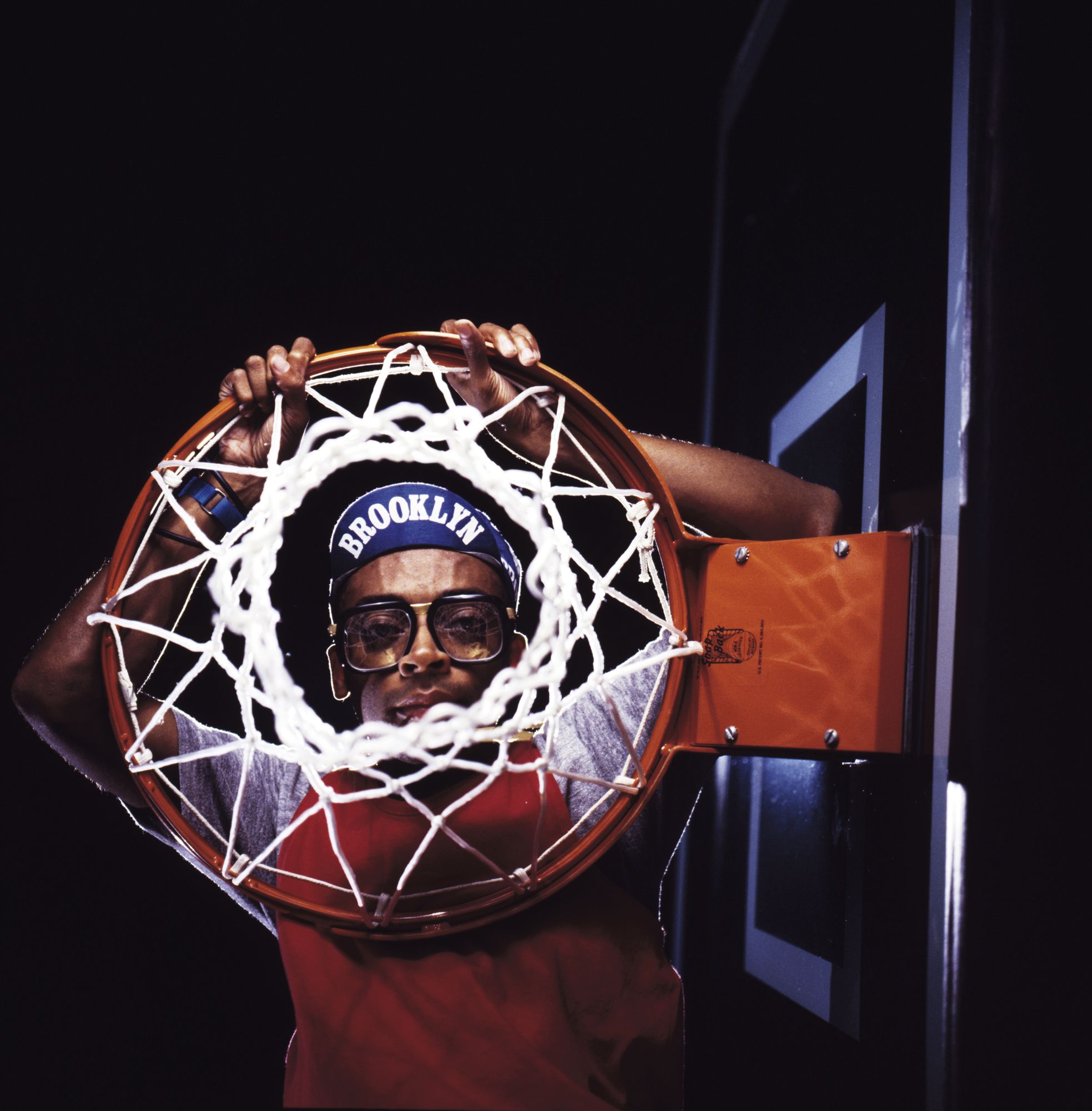
Spike Lee’s ties with Brooklyn are storied. The filmmaker grew up in Fort Greene, where he also established his production offices, while his movies have centered neighborhoods from Bed-Stuy to Red Hook, all filmed on location. And there’s his famed 2014 broadside against the scourge of gentrification, which, among other things, revealed his deep love for the borough. “You have to come with respect,” he said. “There’s a code. There’s people.”
For all his deep roots in Brooklyn, though, the borough has yet to host a major exhibition on Lee. But that’s about to change when “Spike Lee: Creative Sources” opens at the Brooklyn Museum on October 6 (through February 4, 2024).
The show promises an immersive journey through the director’s creative process and sources of inspiration that have kindled his four-decade film career. More than 300 objects will be featured, not limited to paintings, props, musical instruments, photographs, album covers, and movie posters pulled from Lee’s personal collection (which was previously on view at the Academy Museum of Motion Pictures in 2021).
The exhibition, said Kimberli Gant, the museum’s Modern and Contemporary art curator who co-organized it, will offer “a fresh perspective on a cultural icon, focusing on the individuals and influences that have shaped Spike Lee’s body of work, which is so well known today.”
“Creative Sources” will be divided into seven segments. Lee’s beloved borough aside, it will delve into Black history and culture, sports, music, cinema history, family, and politics—motifs that have fueled his cinematic storytelling across films from Do the Right Thing (1989) to Malcolm X (1992) to BlacKkKlansman (2018).
Each section will feature a clip from one of Lee’s films, with the installation drawing out its thematic underpinnings. His 2020 war drama, Da 5 Bloods, for instance, is paired with propaganda posters from World War II and the Vietnam War featuring cruel stereotypes of Black American soldiers. Lee’s 2000 satire, Bamboozled, which caustically critiqued minstrelsy, will also be shown with its original inspiration, Michael Ray Charles’s potent work Forever Free (Bamboozled) (1997).
Other objects speak to Lee’s embrace of Black excellence. There’s Prince’s iconic “Love Symbol” guitar, a commissioned painting by Kehinde Wiley centered on Jackie Robinson, and images of Black creatives such as actress Lena Horne and writer James Baldwin whose work encompassed the fight for civil rights.
Not least, Brooklyn is represented here as a locale that has shaped Lee and in turn, been shaped by Lee. The exhibition revisits set designs for his Brooklyn-centric films, including Do the Right Thing and She’s Gotta Have It (1986), rounded out with photographs by Tseng Kwong Chi and David Lee, Spike’s younger brother.
“By making Lee’s collection accessible to the public,” said Gant, “this showcase celebrates his legacy while honoring his deep connection to Brooklyn, a place that has been an integral part of his storytelling.”